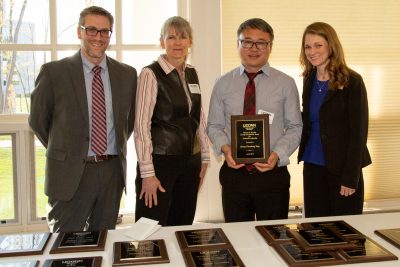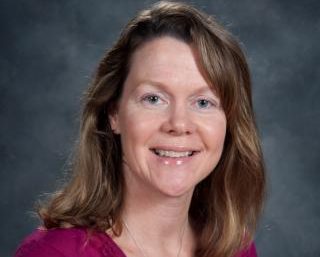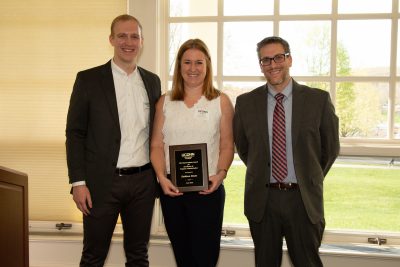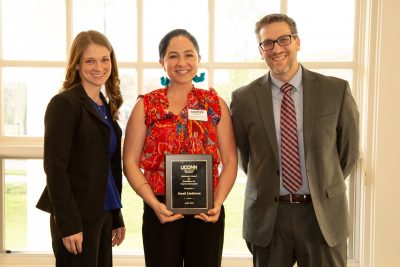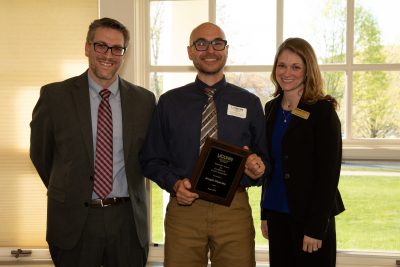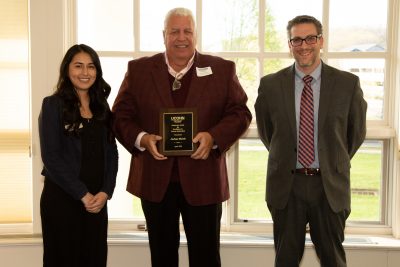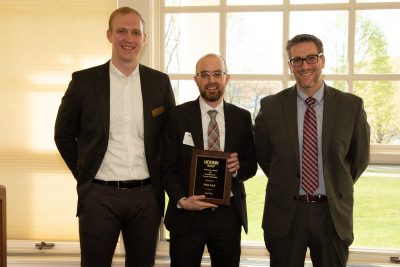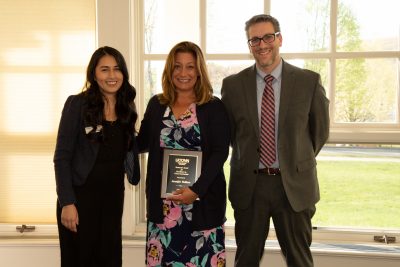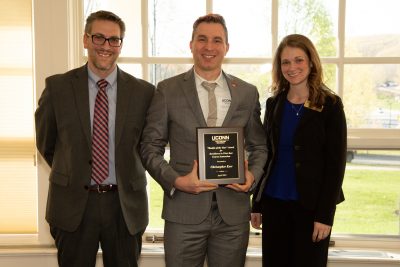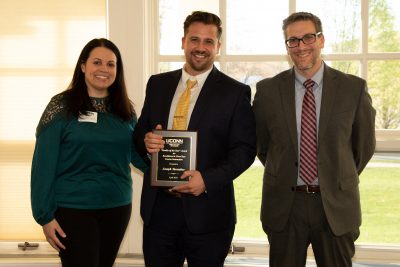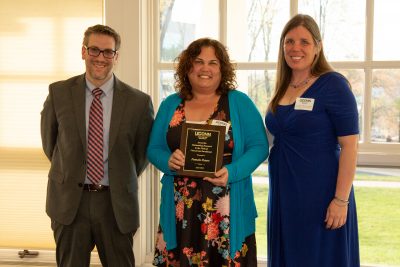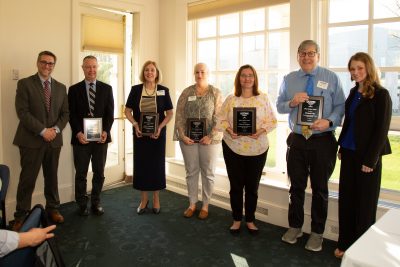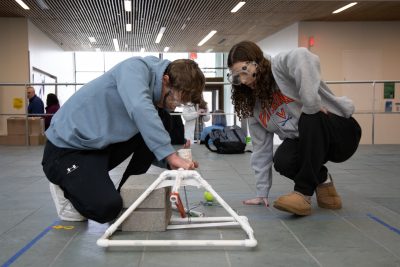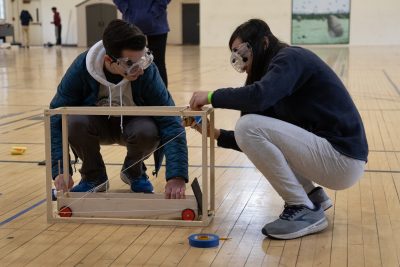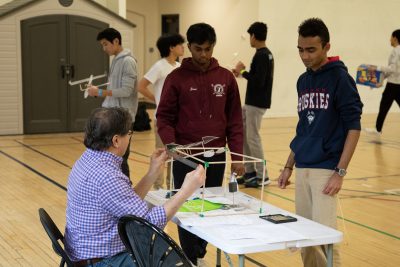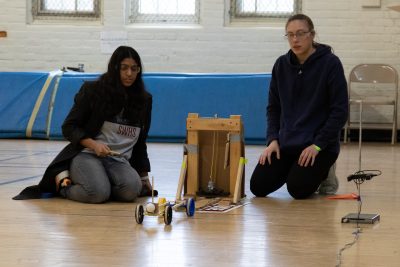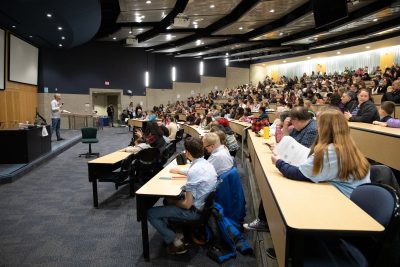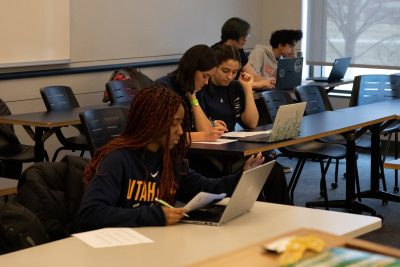by Carissa Rutkauskas
The 2023 UConn ECE Marine Science Symposium was held over two days this year, May 30-31, and saw a record number of participants. Nearly 200 students from seven schools (The Morgan School, University High School of Science and Engineering, Marine Science Magnet High School, Ledyard High School, Waterford High School, Coginchaug High School, and The Sound School) spent a day at the UConn Avery Point Campus. The first day was opened with Larissa Graham, Education Coordinator, of the Connecticut National Estuarine Research Reserve (NERR) introducing her work. NERR provides stewardship, research, training, and education at each of the 30 reserves in the National Estuarine Research Reserve System, allowing reserves to have an environmental impact at the local level, as well as at the national level.1 Ms. Graham closed her talk by sharing opportunities with students on how they can volunteer with NERR (s.uconn.edu/ctreserve). The rest of the day was student-driven with students presenting about and listening to poster presentations on the research they had done and touring different aspects of the Avery Point Campus. Capitan Marc Liebig hosted a tour of the R/V Connecticut, a 90’ steel single screw research vessel that was designed and built for the University of Connecticut in 1998 and is outfitted for year-round coastal service.2 Dr. Koerting also provided tours of the water labs and other research labs throughout campus. On Wednesday morning, 33 students presented their work, individually or in small groups, in front of their peers in the auditorium. The afternoon session featured over 30 poster presentations, including posters from the previous day. Faculty and members of the Marine Sciences Department joined the ECE Students for this part of the event to show their support and provide the students the opportunity to make connections with UConn Faculty and students.
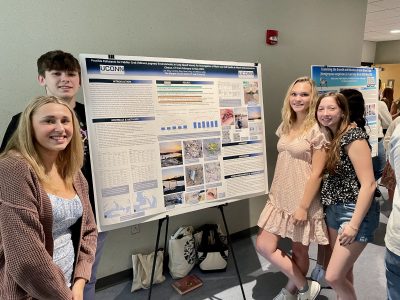
UConn ECE Marine Science Faculty Coordinator and event organizer, Dr. Claudia Koerting, explained that participants were from two very different courses - MARN1003E: Introduction to Oceanography with Laboratory or MARN 1001E: The Sea Around Us. Introduction to Oceanography is designed for marine sciences and environmental sciences majors. Students study the processes governing the geology, circulation, chemistry, and biological productivity of the world’s oceans. Laboratory experiments, hands-on exercises, and field observations are a required component. UConn ECE Students may meet this requirement through their year-long projects which were presented during the symposium. The Sea Around Us helps students understand the relationship of humans with the marine environment. This non-majors course teaches students about the ocean processes they need to understand marine resources, the development and use of the coastal zone, and the impact of technology on marine ecosystems. The students enrolled in MARN 1001E reviewed the literature to take complex topics that could then be accurately communicated to the general public.
1estuarineresearchreserve.center.uconn.edu/ct-reserve/
2marinesciences.uconn.edu/rvct/
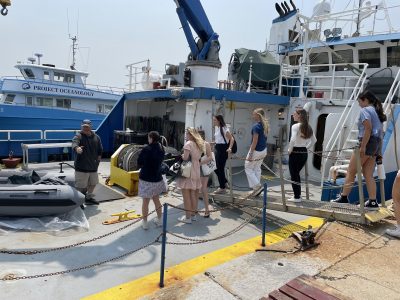
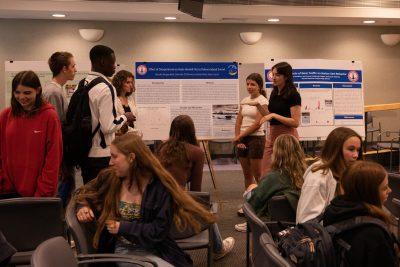
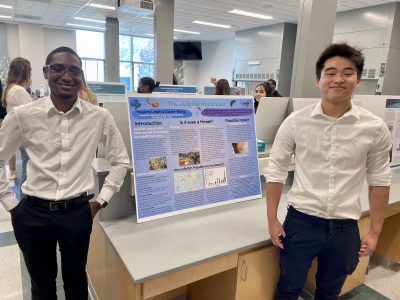
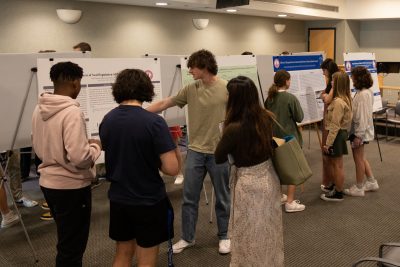
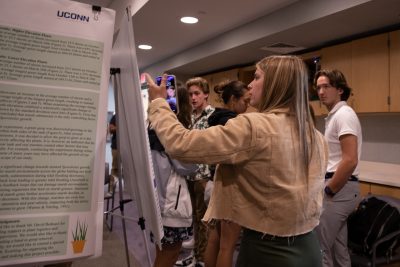
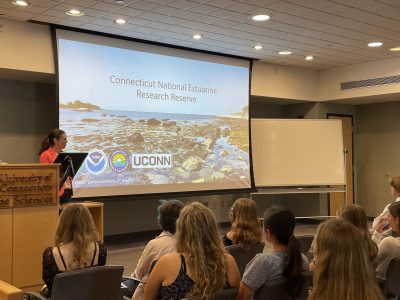
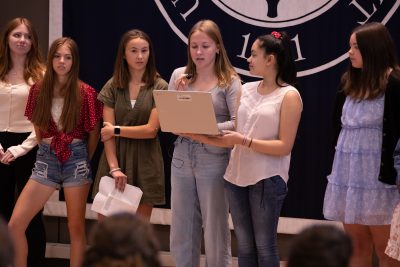
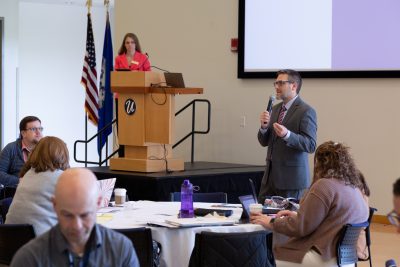
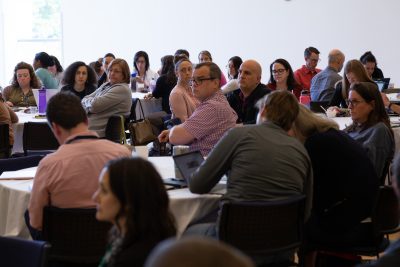
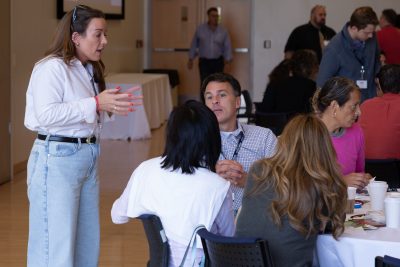
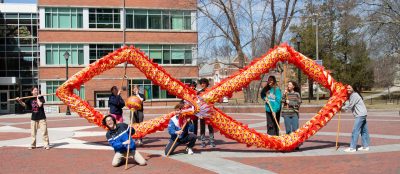
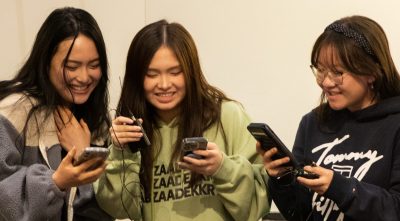
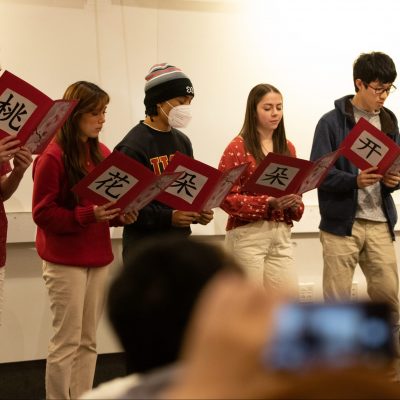
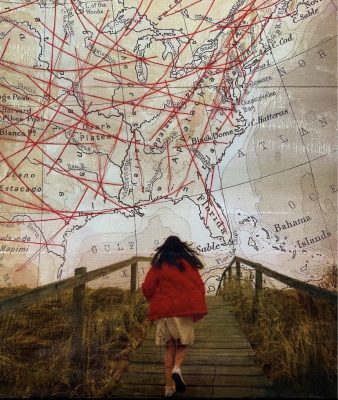 First Place/cover
First Place/cover Second Place
Second Place Third Place
Third Place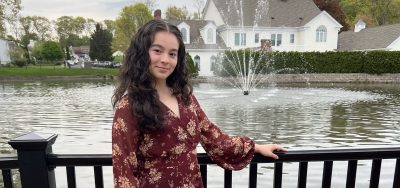
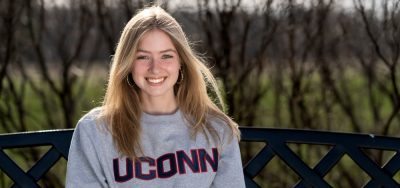
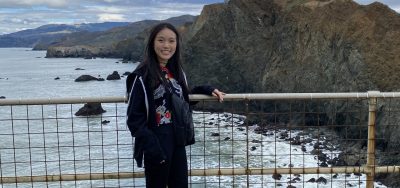
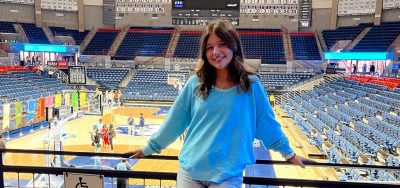
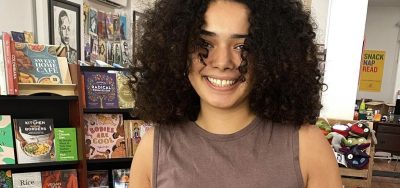
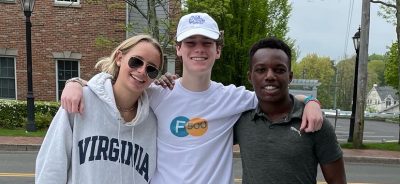
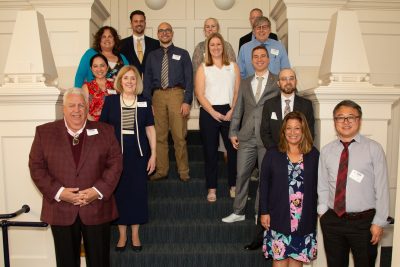 UConn ECE faculty, staff, and award winners look forward to the annual Professional Recognition Awards Ceremony each year as a momentous time to decompress and celebrate the accomplishments and successes of the community. This year, we were finally able to host a fully in-person Awards Ceremony for award winners, family, and friends on the UConn Storrs Campus, something we have not been able to do for the past four years. Our award winners and guests gathered for the Awards Ceremony at the UConn Alumni Center on April 21st for an elegant sit-down dinner where they were welcomed by OECP Executive Director, Christopher Todd as well as UConn’s Associate Vice Provost, Dr. Peter Diplock.
UConn ECE faculty, staff, and award winners look forward to the annual Professional Recognition Awards Ceremony each year as a momentous time to decompress and celebrate the accomplishments and successes of the community. This year, we were finally able to host a fully in-person Awards Ceremony for award winners, family, and friends on the UConn Storrs Campus, something we have not been able to do for the past four years. Our award winners and guests gathered for the Awards Ceremony at the UConn Alumni Center on April 21st for an elegant sit-down dinner where they were welcomed by OECP Executive Director, Christopher Todd as well as UConn’s Associate Vice Provost, Dr. Peter Diplock.